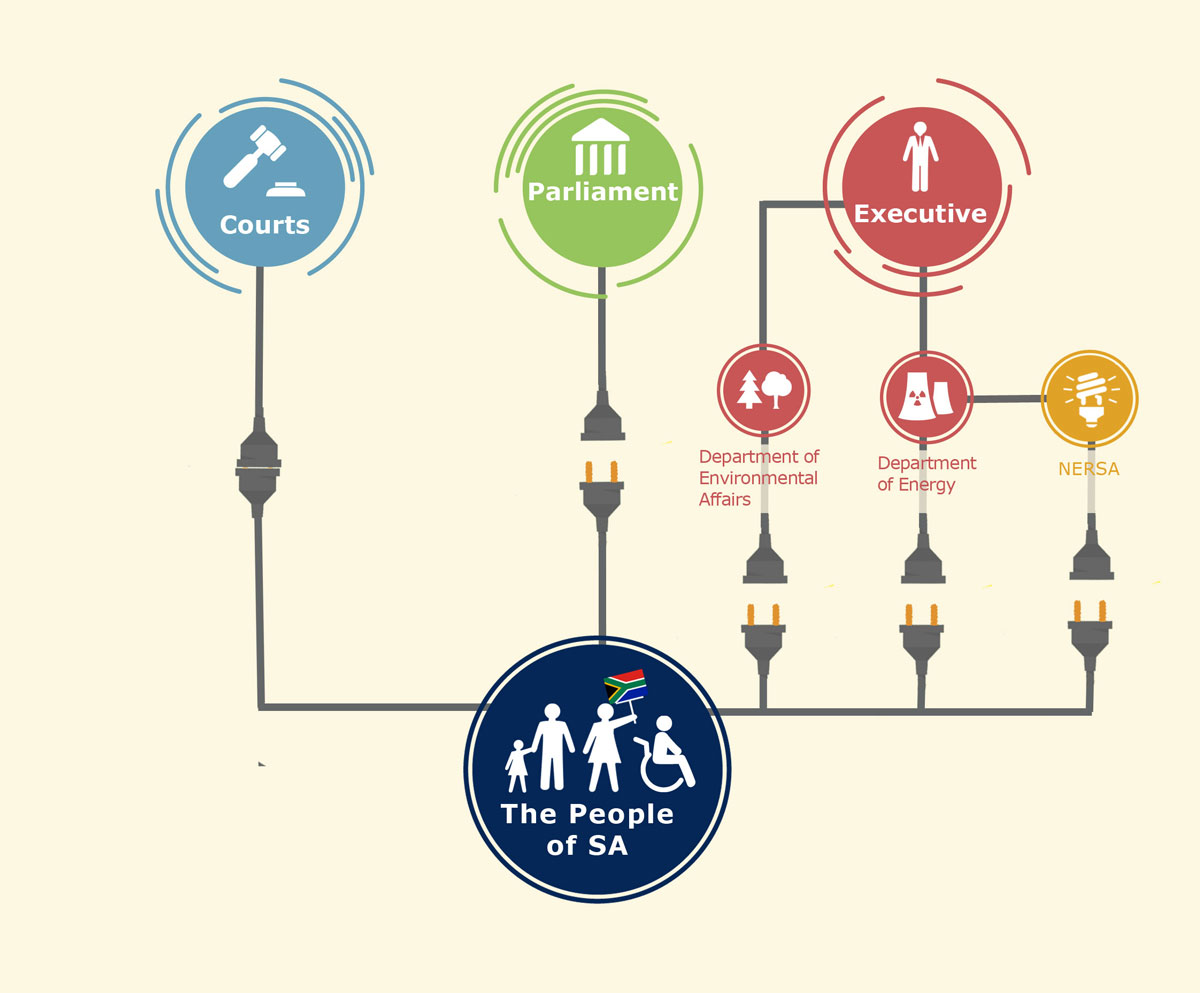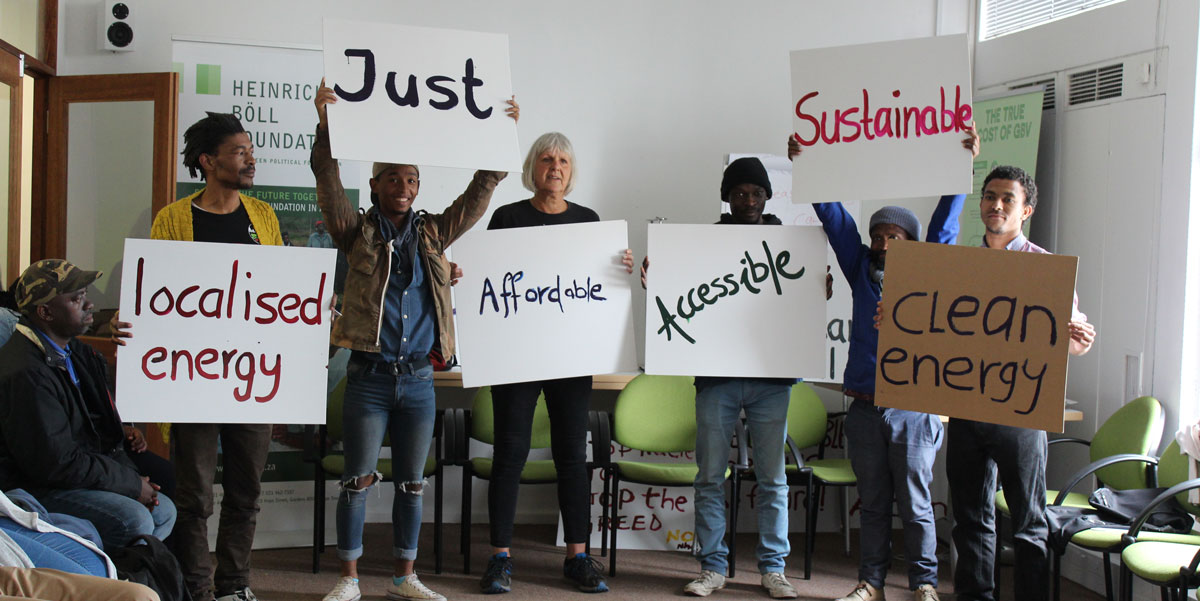In 2014, Russia’s state-owned nuclear corporation announced that it had signed a nuclear procurement agreement with South Africa. This came as a shock to many citizens, since the deal did not pass through proper parliamentary channels and there had been no space for participation from the public on the deal.
SAFCEI and Earthlife Africa Johannesburg believed that there was a deliberate manipulation of government decision-making processes. So in October, 2015, they took the matter to court.
On 26 April 2017, after a campaign inside the courtroom and in the public arena, with public meetings and workshops, protests and marches, the Western Cape High Court found that the nuclear deal and the various associated energy procurement processes, were both illegal and unconstitutional.
Why SAFCEI and ELA-JHB took government to court
- Because the R1-trillion nuclear deal would have tied the country into unnecessary debt well into the foreseeable future.
- To stop further government corruption and poor decisions in the energy sector, and to hold the Executive accountable for its decisions.
- To promote energy justice and civil participation, since citizens were excluded from having a say in decisions which will affect them in future.
- Because South Africa’s energy policy is outdated and must be interrogated and participatively updated.
- Because progress in renewable energy technology has sped up and costs have dropped significantly, so we should be investing in renewable energy instead.
- Because evidence has shown that nuclear energy is NOT clean, NOT affordable and NOT sustainable.
The court case could not have been won without the collective effort of our civil society and NGO partners, and also the many individual citizens who took up the cause.

The green light for a new nuclear plant near Koeberg
While the court case blocked the nuclear deal from going ahead, other nuclear-related processes continue to unfold. The environmental impact assessment (EIA) for a new nuclear plant to be built at Koeberg, near Cape Town in the Western Cape, was given the green light.
Early in 2018, SAFCEI mobilised community representatives to host a series of roadshows in the Northern Cape, Karoo and Eastern Cape to build awareness about the nuclear deal and the upcoming EIA appeal deadline. We gathered more than 700 letters of appeal, which we hope will influence the Minister’s decision to reverse the EIA approval.
As 2018 unfolds, embedded corruption continues to dog South Africa’s heels and SAFCEI will be keeping its eyes wide open as we eagerly anticipate the new electricity production plan. Nuclear energy will neither create greater equity or access to energy in South Africa, nor will it address the challenges of climate change.









